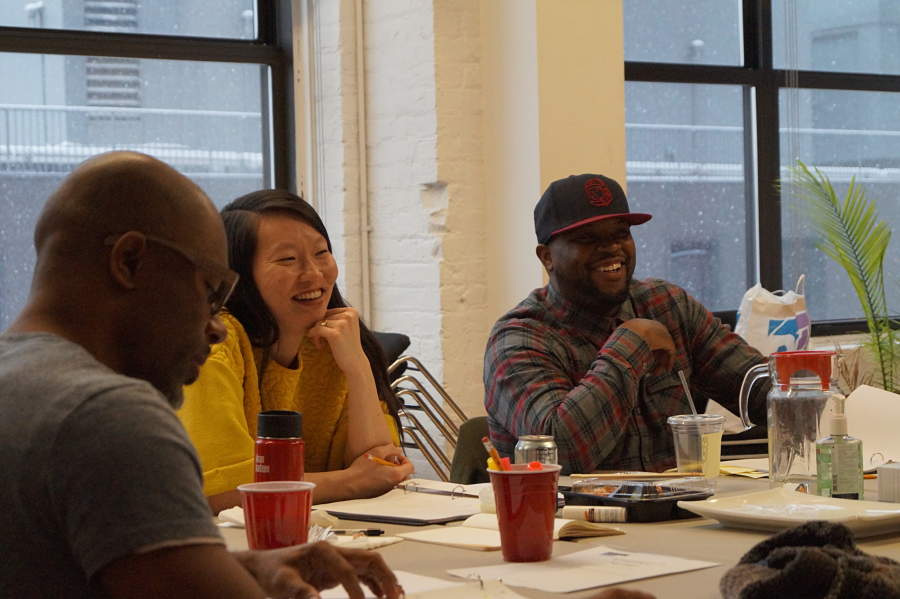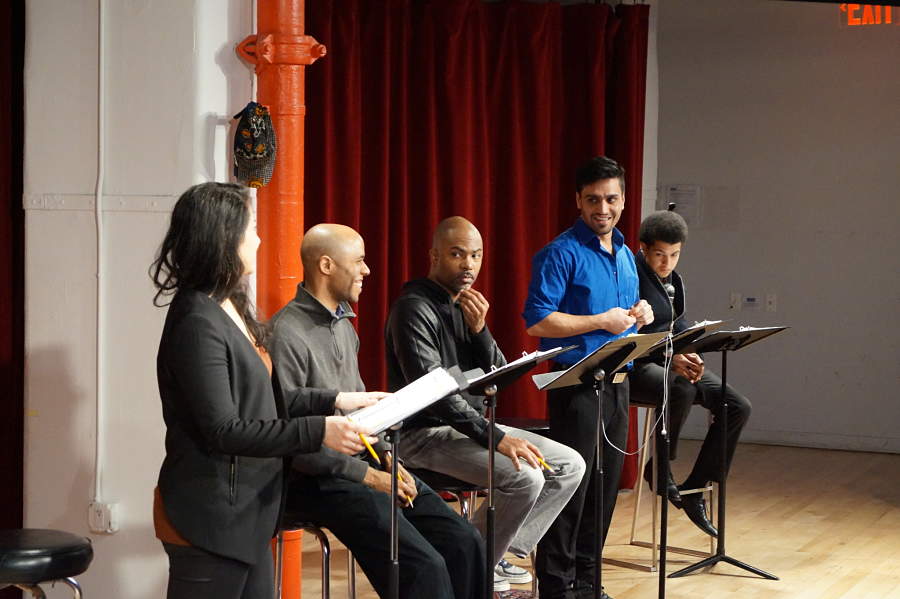SACRAMENTO, CALIF.: When Buck Busfield, producing artistic director of B Street Theatre, caught Idris Goodwin’s How We Got On at the 2012 Humana Festival, he was thunderstruck (“It was fabulous—an amazing display of writing”) and decided to commission a play from the writer and performer. He looked for a subject, then recalled Corey Kilgannon’s 2007 New York Times article about African-American brothers Antoine Dowdell and Tarik Shah—one a classical pianist, the other an upright bass jazz prodigy and Islam convert arrested in an antiterrorist sting.
“When I read the story, I thought to myself, There will be 100 plays about this…this is gold.” Actually, there haven’t been any plays about it, until now: Goodwin’s Bars and Measures runs at B Street Aug. 18-Sept. 19. Said Busfield of the original story: “It’s so amazing how two middle-class, Bronx-born brothers could be so different culturally, but love each other and try to connect via music through the bars of a jail cell.”
In approaching Goodwin, whose multifaceted résumé includes hip-hop, poetry, and essays as well as plays, Busfield thought that if the story “spoke to him,” it would be “a really good match.” The idea caught fire with Goodwin, and for much the same reason it inspired Busfield: There was inherent drama in the stories of the brothers’ prison meetings. “While Tarik was awaiting trial, Antoine would come visit him in prison,” said Goodwin. “Antoine had trouble playing jazz, so his brother would teach him about swing and how to do stride piano in the prison rec room. Only thing—they wouldn’t have any instruments. So they’d scat and sing phrases back to one another.”

Goodwin decided he “wasn’t interested in a docuplay or a biographical story” but something fictional, “drawn from my research.” Accordingly, he changed the brothers’ names to Eric and Bilal. Playing them at B Street will be Darian Dauchan and Jahi Kearse, who originated the roles in a 2015 New Black Fest reading at the Lark Play Development Center in New York City (it also had a reading at Tricklock Company in Albuquerque, N.M.).
“I was struck by the pulse of the writing, rhythm of the text,” said Koons. “One thing I said to Idris early on was that music is part of our daily lives. Stories built around sound, integrated with sound, feel so natural to many theatregoers. Of course, that’s how we want to experience the world now. We are so attuned to sound. We talked a lot about the courtroom scene—how it sounds like a concert, with each actor a different instrument, and we’re experiencing it like a composition.”


